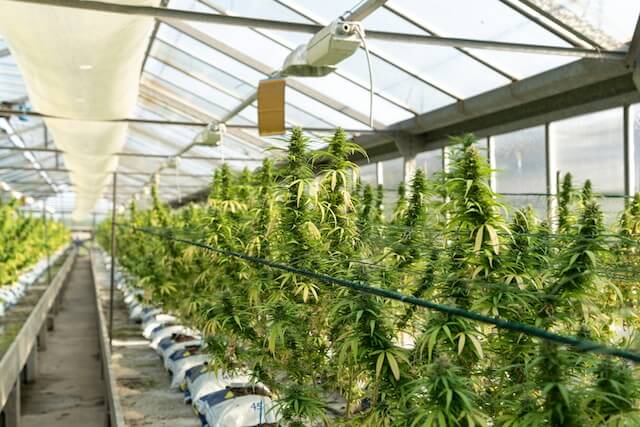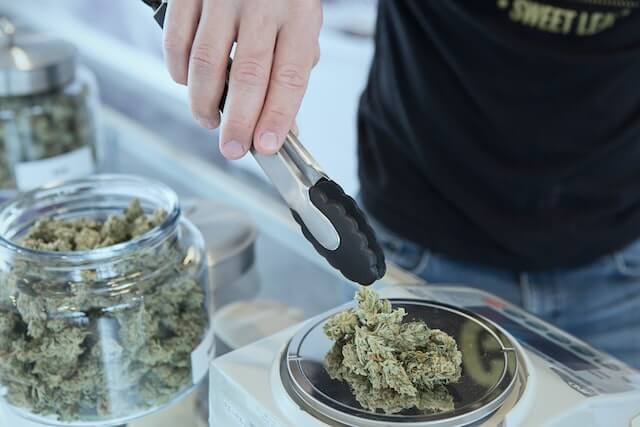The Importance of Compliance for Hemp Companies: Why Legal Compliance is Critical for Success

Legal compliance is critical for success in any industry, and the hemp industry is no exception. As the popularity of hemp-derived CBD products continues to grow and regulations become increasingly complex, including the upcoming 2024 Hemp Bill, it is essential for hemp companies to prioritize compliance in order to avoid fines, legal action, and damage to their reputation.
In this article, we will explore the importance of compliance for hemp companies, the legal framework governing the industry, and strategies for achieving compliance. By understanding the importance of legal compliance and taking proactive steps to ensure compliance, hemp companies can mitigate risk, maintain consumer trust, and position themselves for future growth.
Definition of hemp
Hemp is a variety of the Cannabis sativa plant species that is grown specifically for industrial use. Unlike marijuana, hemp contains low levels of THC, the psychoactive compound that produces a “high,” and instead has higher levels of CBD, or cannabidiol, which has potential therapeutic benefits.
Overview of the hemp industry
The hemp industry has experienced explosive growth in recent years, driven by the increasing popularity of CBD products and the legalization of hemp at the federal level with the passage of the 2018 Farm Bill. The global industrial hemp market size was estimated at USD 4.74 billion in 2022 and is expected to grow at a compound annual growth rate (CAGR) of 17.1% from 2023 to 2030.
Compliance is critical for hemp companies
Compliance is critical for any business, but it is especially important for companies operating in the hemp industry. With the legalization of hemp, there are now a variety of federal, state, and local regulations that hemp companies must comply with. Failure to comply with these regulations can result in fines, legal action, and damage to a company’s reputation.
In addition, compliance is necessary to maintain consumer trust and ensure the safety and quality of hemp products. As such, it is essential for hemp companies to understand the regulations and standards governing their industry and take proactive measures to achieve compliance.

Legal Framework for Hemp Companies
Overview of federal regulations
Hemp companies are subject to a variety of federal regulations governing the production, sale, and marketing of hemp and hemp-derived products. The 2018 Farm Bill legalized hemp at the federal level, but it also established certain requirements for the cultivation and processing of hemp. Under the current Farm Bill, hemp products must contain less than or equal to 0.3% THC on a dry-weight basis to be considered legal.
In addition to the Farm Bill, hemp companies must comply with a variety of other federal regulations, including those governing food and drug safety, advertising and labeling, and transportation.
State and local regulations
In addition to federal regulations, hemp companies must also comply with state and local regulations. State regulations for hemp vary widely, with some states imposing stricter requirements than others such as Florida. For example, some states require hemp companies to obtain a license before growing or processing hemp, while others do not. It is important for hemp companies to research and understand the regulations in each state where they operate.
Challenges of Compliance for hemp companies
Compliance can be challenging for hemp companies for a variety of reasons. One of the biggest challenges is the lack of clarity and consistency in regulations across different states and localities. This can make it difficult for hemp companies to understand and comply with the regulations in each jurisdiction where they operate.
Another challenge is the rapidly changing regulatory environment. As the hemp industry continues to evolve, regulations are likely to change and become more complex, making compliance even more challenging.
Common compliance issues faced by hemp companies
Some of the most common compliance issues faced by hemp companies include mislabeling, making unsubstantiated health claims, and failing to test products for contaminants. Mislabeling is a particularly common issue, with some companies labeling their products as containing more CBD than they actually do, or failing to include information about the presence of THC or other compounds in their products.
Making unsubstantiated health claims is also a common issue, as some companies market their products as being able to cure or treat specific diseases without scientific evidence to support these claims. Finally, failing to test products for contaminants such as pesticides, heavy metals, and mold can result in serious health risks for consumers and legal repercussions for the company.

The Importance of Compliance for Hemp Companies
Legal Consequences of Non-Compliance
Non-compliance can have serious legal consequences for hemp companies. The FDA and other regulatory agencies have the authority to take enforcement action against companies that violate regulations, including issuing warning letters, fines, and in some cases, criminal charges. These consequences can be costly and damaging to a company’s reputation.
Reputation and Consumer Trust
Compliance is also important for maintaining consumer trust and protecting a company’s reputation. Consumers are increasingly aware of the risks associated with unregulated CBD products and are looking for companies that prioritize quality and safety. By ensuring compliance with regulations, hemp companies can demonstrate their commitment to consumer safety and build trust with their customers.
Risk Management
Compliance is an essential part of risk management for hemp companies. By complying with regulations, companies can mitigate the risk of legal action, fines, and reputational damage. Compliance also helps companies to identify and address potential risks before they become larger problems.
Access to Banking and Financial Services
Compliance is also important for accessing banking and financial services. Because hemp is still classified as a controlled substance under federal law, many banks and financial institutions are hesitant to do business with hemp companies. By demonstrating compliance with regulations, companies can increase their chances of obtaining banking and financial services.
Potential for Future Growth
Finally, compliance is important for the potential for future growth in the hemp industry. As regulations become more complex and enforcement becomes more stringent, compliance will become an increasingly important factor in determining which companies succeed and which ones do not.
Companies that prioritize compliance will be better positioned to capitalize on the growth potential of the industry and establish themselves as leaders in the space.
Compliance is critical for the success of hemp companies by prioritizing compliance, companies can avoid legal consequences, protect their reputation, mitigate risk, access banking and financial services, and position themselves for future growth. In a rapidly evolving regulatory environment, compliance must be an ongoing priority for companies looking to succeed in the hemp industry.

Strategies for Achieving Compliance
Understanding Regulations and Standards
One of the most important strategies for achieving compliance as a hemp company is to thoroughly understand the regulations and standards that apply to your business. This includes federal, state, and local regulations, as well as industry standards and best practices. By staying up-to-date on regulations and standards, companies can ensure that they are meeting all requirements and avoiding potential compliance issues.
Implementing Quality Control Measures
Another key strategy for achieving compliance is to implement robust quality control measures. This includes testing raw materials and finished products for potency, purity, and contaminants, as well as implementing good manufacturing practices (GMPs) and other quality control standards. By ensuring that products are safe and effective, companies can protect consumers and minimize the risk of legal action.
Documenting Compliance
Documenting compliance is an essential part of maintaining compliance as a hemp company. This includes maintaining detailed records of quality control measures, product testing results, and other compliance-related activities. These records can be used to demonstrate compliance with regulatory agencies and to provide a defense in the event of legal action.
Training Employees on Compliance Standards
Finally, training employees on compliance standards is an important strategy for achieving compliance. All employees should be trained on relevant regulations, standards, and quality control measures, as well as the importance of compliance. This can help to ensure that everyone in the company is working together to maintain compliance and minimize risk.

Consequences of Non-Compliance: Fines and FDA Warning Letters
- Curaleaf – In July 2019, the FDA issued a warning letter to Curaleaf, one of the largest cannabis companies in the US, for selling CBD products with unsubstantiated medical claims. Curaleaf was fined $250,000 by the state of Massachusetts for the same reason. (source: https://www.fda.gov/news-events/press-announcements/fda-warns-15-companies-illegally-selling-various-products-containing-cannabidiol-agency-details)
- Infinite Product Company – In November 2019, the FDA issued a warning letter to Infinite Product Company for selling CBD products with unsubstantiated medical claims. The FDA found that the company’s products were marketed as a cure for cancer, Alzheimer’s disease, and other serious illnesses. (source: https://www.fda.gov/news-events/press-announcements/fda-warns-15-companies-illegally-selling-various-products-containing-cannabidiol-agency-details)
- Advanced Spine and Pain LLC – In March 2020, the FDA issued a warning letter to Advanced Spine and Pain LLC for selling CBD products with unsubstantiated medical claims. The company claimed that its CBD products could treat chronic pain, anxiety, and other medical conditions. (source: https://www.fda.gov/news-events/press-announcements/fda-warns-firms-illegally-selling-cbd-products)
- BIOTA Biosciences LLC – In January 2021, the FDA issued a warning letter to BIOTA Biosciences LLC for selling CBD products with unsubstantiated medical claims. The company claimed that its products could cure or prevent COVID-19, among other medical conditions. (source: https://www.fda.gov/news-events/press-announcements/fda-warns-firms-illegally-selling-cbd-products)
- Nutra Pure LLC – In March 2018, the FDA issued a warning letter to Nutra Pure LLC for making unsubstantiated medical claims about its CBD products. The company claimed that its products could cure or treat diseases like cancer, Alzheimer’s, and epilepsy. (source: https://www.fda.gov/news-events/press-announcements/fda-warns-companies-illegally-selling-cbd-products)
- Hemp Oil Care – In April 2019, the FDA issued a warning letter to Hemp Oil Care for making unsubstantiated medical claims about its CBD products. The company claimed that its products could cure or treat diseases like cancer, Alzheimer’s, and depression. (source: https://www.fda.gov/news-events/public-health-focus/warning-letters-and-test-results-cannabidiol-related-products)
- Greenroads Health – In May 2019, the FDA issued a warning letter to Greenroads Health for making unsubstantiated medical claims about its CBD products. The company claimed that its products could cure or treat diseases like Alzheimer’s, cancer, and multiple sclerosis. (source: https://www.fda.gov/news-events/press-announcements/fda-warns-companies-illegally-selling-cbd-products)
- Rooted Apothecary LLC – In October 2019, the FDA issued a warning letter to Rooted Apothecary LLC for making unsubstantiated medical claims about its CBD products. The company claimed that its products could cure or treat diseases like cancer, Parkinson’s, and Alzheimer’s. (source: https://www.fda.gov/news-events/press-announcements/fda-warns-companies-illegally-selling-cbd-products)
It’s worth mentioning that the FDA has issued warning letters to many other CBD companies for similar reasons, and this list is not complete.
Achieving compliance as a hemp company requires a multifaceted approach that includes understanding regulations and standards, implementing quality control measures, documenting compliance, and training employees on compliance standards.
By prioritizing compliance and taking these steps, companies can avoid legal consequences, protect their reputation, and position themselves for long-term success in the rapidly growing hemp industry.
I hope this information helps your company stay in compliance.
Are you struggling with maintaining compliance in your hemp company? Don’t worry, we’re here to assist you! Feel free to get in touch with us for our expert guidance and support.






Responses